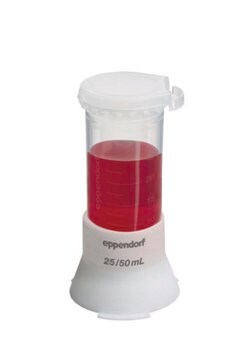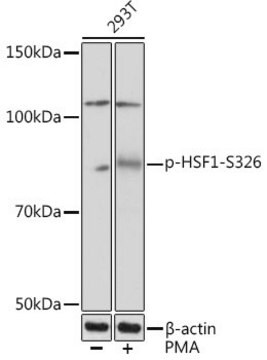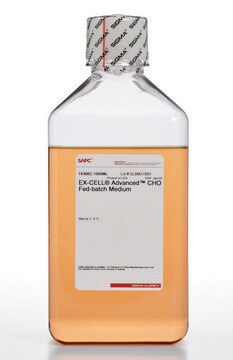推薦產品
描述
Powered by Eupheria Biotech
產品線
MISSION®
形狀
lyophilized powder
esiRNA cDNA 標靶序列
ATTCCCTCCTTGCTCGAGATGGATCTGCCCGTGGGCCCCGGCGCGGCGGGGCCCAGCAACGTCCCGGCCTTCCTGACCAAGCTGTGGACCCTCGTGAGCGACCCGGACACCGACGCGCTCATCTGCTGGAGCCCGAGCGGGAACAGCTTCCACGTGTTCGACCAGGGCCAGTTTGCCAAGGAGGTGCTGCCCAAGTACTTCAAGCACAACAACATGGCCAGCTTCGTGCGGCAGCTCAACATGTATGGCTTCCGGAAAGTGGTCCACATCGAGCAGGGCGGCCTGGTCAAGCCAGAGAGAGACGACACGGAGTTCCAGCACCCATGCTTCCTGCGTGGCCAGGAGCAGCTCCTTGAGAACATCAAGAGGAAAGTGACCAGTGTGTCCACCCTGAAGAGTGAAGACATAAAGATCCGCCAGGA
Ensembl | 人類登錄號
NCBI登錄號
運輸包裝
ambient
儲存溫度
−20°C
基因資訊
human ... HSF1(3297) , HSF1(3297)
一般說明
MISSION esiRNA are endoribonuclease prepared siRNA. They are a heterogeneous mixture of siRNA that all target the same mRNA sequence. These multiple silencing triggers lead to highly-specific and effective gene silencing.
For additional details as well as to view all available esiRNA options, please visit SigmaAldrich.com/esiRNA.
For additional details as well as to view all available esiRNA options, please visit SigmaAldrich.com/esiRNA.
法律資訊
MISSION is a registered trademark of Merck KGaA, Darmstadt, Germany
儲存類別代碼
10 - Combustible liquids
閃點(°F)
Not applicable
閃點(°C)
Not applicable
Seok Jun Kim et al.
Yonsei medical journal, 59(9), 1041-1048 (2018-10-18)
Heat shock factor 1 (HSF1) is a key regulator of the heat shock response and plays an important role in various cancers. However, the role of HSF1 in gastric cancer is still unknown. The present study evaluated the function of
Liang Chen et al.
Cell cycle (Georgetown, Tex.), 18(1), 60-68 (2018-12-20)
Cells mainly rely on stress proteins, such as heat-shock proteins (HSPs), to respond to various proteotoxic conditions. These proteins protect tumor cells and enhance their survive. However, the regulation of stress proteins involved in protein quality control (PQC) is still
Antonio Cigliano et al.
Oncotarget, 8(33), 54149-54159 (2017-09-15)
Upregulation of the heat shock transcription factor 1 (HSF1) has been described as a frequent event in many cancer types, but its oncogenic role in hepatocellular carcinoma (HCC) remains poorly delineated. In the present study, we assessed the function(s) of
Ye-Ji Jeong et al.
PloS one, 10(6), e0128552-e0128552 (2015-06-02)
Radiation enteropathy is a common complication in cancer patients. The aim of this study was to investigate whether radiation-induced intestinal injury could be alleviated by coniferyl aldehyde (CA), an HSF1-inducing agent that increases cellular HSP70 expression. We systemically administered CA
Jacqueline H L Fok et al.
Clinical cancer research : an official journal of the American Association for Cancer Research, 24(10), 2395-2407 (2018-02-03)
Purpose: Myeloma is a plasma cell malignancy characterized by the overproduction of immunoglobulin, and is therefore susceptible to therapies targeting protein homeostasis. We hypothesized that heat shock factor 1 (HSF1) was an attractive therapeutic target for myeloma due to its
我們的科學家團隊在所有研究領域都有豐富的經驗,包括生命科學、材料科學、化學合成、色譜、分析等.
聯絡技術服務







